Filter by
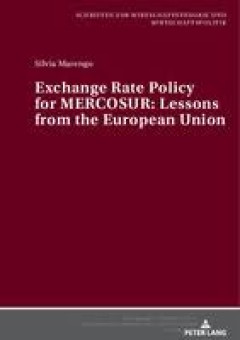
Exchange Rate Policy for MERCOSUR:- Lessons from the European Union Lessons …
In January 1995, four Latin American countries, Argentina, Brazil, Uruguay and Paraguay joined their destinies within a common and ambitious enterprise called MERCOSUR. MERCOSUR, the Common Market of the South, represents an important economic integration area that generates a GDP of $US 600 billion, providing a market of 200 million people spread over an area of 12 million square km. Initially…
- Edition
- -
- ISBN/ISSN
- 9783631751374
- Collation
- -
- Series Title
- -
- Call Number
- -
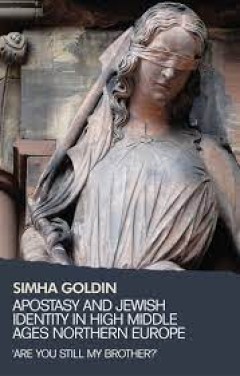
Apostasy and Jewish identity in High Middle Ages Northern Europe 'Are you st…
The attitude of Jews living in the medieval Christian world to Jews who converted to Christianity or to Christians seeking to join the Jewish faith reflects the central traits that make up Jewish self-identification. The Jews saw themselves as a unique group chosen by God, who expected them to play a specific and unique role in the world. This study researches fully for the first time the vario…
- Edition
- -
- ISBN/ISSN
- 9781526129345
- Collation
- -
- Series Title
- -
- Call Number
- -
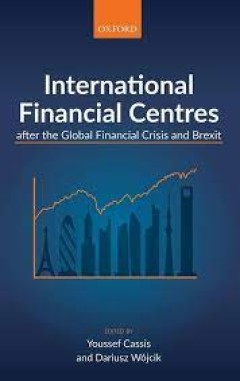
International Financial Centres after the Global Financial Crisis and Brexit
This book gathers leading economic historians, geographers, and social scientists to focus on the developments in key international financial centres following the 2008 Global Financial Crisis and to consider the likely effects of Brexit on these centres. Eleven centres in eight countries are taken into consideration: New York, London, Frankfurt, Paris, Zurich/Geneva, Hong Kong/Shanghai/Beijing…
- Edition
- -
- ISBN/ISSN
- 9780198817314
- Collation
- -
- Series Title
- -
- Call Number
- -
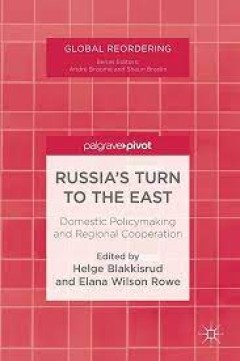
Russia's Turn to the East Domestic Policymaking and Regional Cooperation
Development studies; Russia; Far East; International affairs; Energy; Shanghai cooperation organization; Economic development; Security policy; Multilateral organizations; Diplomacy; Regionalism; Russian–European relations; Russia’s “pivot to the East”; Annexation of Crimea; Regional politics; Eurasia; Ukraine; Sanctions regime; Foreign policy
- Edition
- -
- ISBN/ISSN
- 9783319697901
- Collation
- -
- Series Title
- -
- Call Number
- -
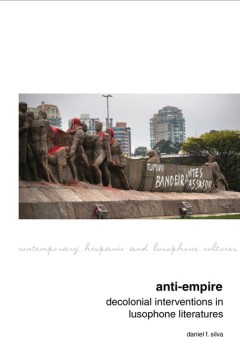
Anti-Empire : Decolonial Interventions in Lusophone Literatures
Anti-Empire explores how different writers across Lusophone spaces have engaged with imperial and colonial power at its various levels of domination, while imagining alternatives to dominant discourses pertaining to race, ethnicity, culture, gender, sexuality, and class. Guided by a theoretically eclectic approach ranging from Psychoanalysis, Deconstruction, Postcolonial Theory, Queer Theory, a…
- Edition
- -
- ISBN/ISSN
- 9781786941008
- Collation
- -
- Series Title
- -
- Call Number
- 800 SIL a
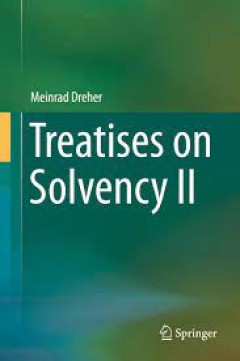
Treatises on Solvency II
The European system of insurance supervision under Solvency II constitutes a parallel to supervision of credit institutions under Basel III. At the heart of this new European insurance supervisory regime are the Solvency II Directive, the attendant regulation, and the EIOPA Regulation. The present volume, "Treatises on Solvency II", includes articles on the bases of European insurance supervisi…
- Edition
- -
- ISBN/ISSN
- 978-3-662-46290-4
- Collation
- -
- Series Title
- -
- Call Number
- -
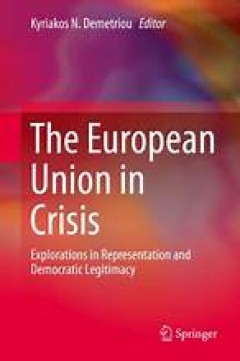
The European Union in Crisis
This volume is a comprehensive and rigorous exploration of intertwined issues surrounding the EU's democracy and legitimacy, written in the turbulent context of the financial crisis. The chapters are woven together under four interconnected thematic sections that examine: rapidly growing national euroscepticism; the Economic Monetary Union and its legitimacy; the future of EU integration; and d…
- Edition
- 1
- ISBN/ISSN
- 978-3-319-08774-0
- Collation
- XXI, 257, 12 b/w illustrations, 5 illustrations in colour
- Series Title
- -
- Call Number
- -
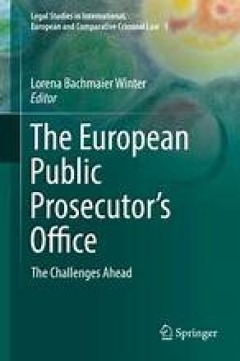
The European Public Prosecutor's Office
This book explores the European Public Prosecutor’s Office (EPPO), the creation of which was approved in the Regulation adopted by the Justice and Home Affairs (JHA) Council on 12 October 2017. The EPPO will be an independent European prosecution office tasked with investigating and prosecuting those crimes defined in the recently adopted Regulation 2017/1371 on combating fraud against th…
- Edition
- 1
- ISBN/ISSN
- 978-3-319-93916-2
- Collation
- XVIII, 279
- Series Title
- Legal Studies in International, European and Comparative Criminal Law
- Call Number
- -
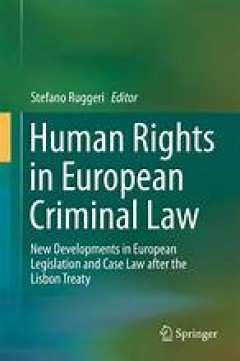
Human Rights in European Criminal Law
This book deals with human rights in European criminal law after the Lisbon Treaty. Doubtless the Lisbon Treaty has constituted a milestone in the development of European criminal justice. Not only has the reform following the Treaty given binding force to the EU Charter of Fundamental Rights, but furthermore it has paved the way for unprecedented forms of supranational legislation. In this sce…
- Edition
- 1
- ISBN/ISSN
- 978-3-319-12042-3
- Collation
- X, 317
- Series Title
- -
- Call Number
- -
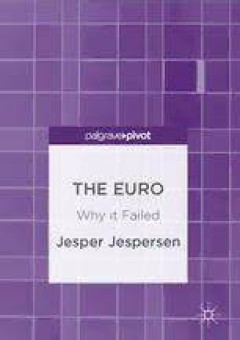
The Euro
This book takes a close look at macroeconomic imbalances within the Eurozone and explores the profound consequences the introduction of the European Monetary Union (EMU) has had on Euro area countries. Particular attention is given to balance of payments deficits and surpluses, and the profound difficulties of rebalancing the Euro area. Throughout the chapters, the author argues that the EMU ha…
- Edition
- 1
- ISBN/ISSN
- 978-3-319-46388-9
- Collation
- XIII, 133, 8 b/w illustrations, 12 illustrations in colour
- Series Title
- -
- Call Number
- -
 Computer Science, Information & General Works
Computer Science, Information & General Works  Philosophy & Psychology
Philosophy & Psychology  Religion
Religion  Social Sciences
Social Sciences  Language
Language  Pure Science
Pure Science  Applied Sciences
Applied Sciences  Art & Recreation
Art & Recreation  Literature
Literature  History & Geography
History & Geography